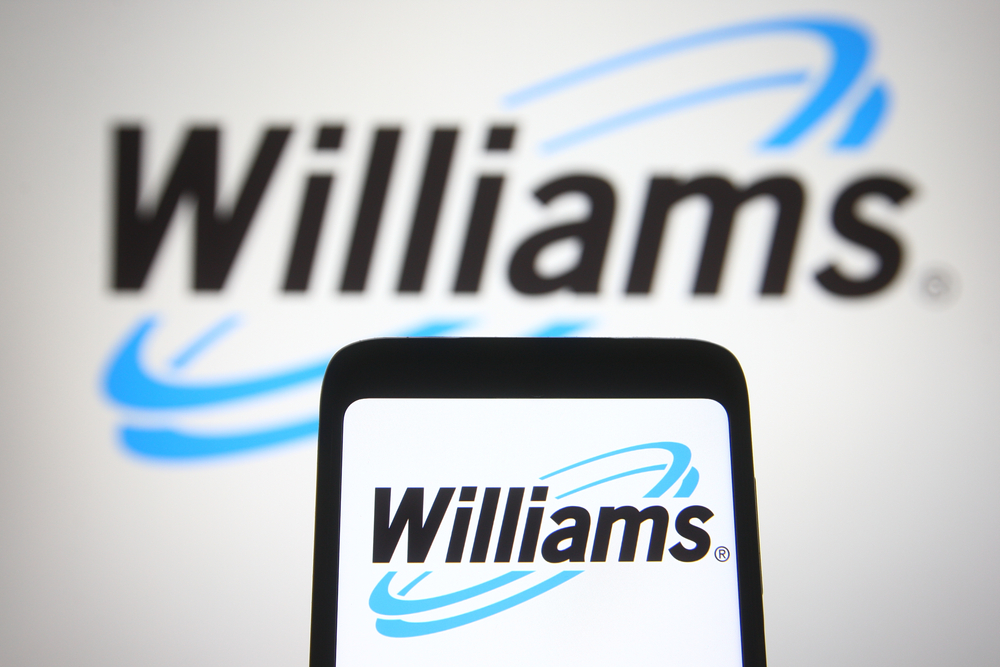Unusual Put Activity in Williams Companies - Investors are Bullish on this Nat Gas Stock

The Williams Companies, Inc. (WMB), the Tulsa, OK-based natural gas pipeline firm, reported strong Q1 cash flow and earnings on Monday. Investors are bullish, as seen by unusual out-of-the-money put options activity today.
WMB stock is at $59.05 in morning trading on Wednesday, May 7. With its $2.00 annual dividend per share (DPS), its dividend yield is 3.38%.

This yield is slightly higher than its trailing 12-month (TTM) average yield of 3.28% according to Yahoo! Finance, and Morningstar. Management pointed out that its dividend coverage ratio was now 2.37x - even after the recent 4% DPS increase. In other words, there is no risk that cash flow won't cover the dividend, even after the recent dip in nat gas prices.
That implies that if WMB were to eventually rise to its average yield, it would be worth about $60.98 per share (i.e., $2.00/0.0328). This gives the stock a bit of upside (+3%).
Unusual Options Activity
That could be why WMB put options for a 2.5-month out expiry period in an out-of-the-money (OTM) strike price have huge volume today.
That can be seen in today's Barchart Unusual Stock Options Activity Report.
The $50.00 strike price put for the July 18 exercise period, which is 14.5% below today's price, is showing an unusual open interest in that contract. There is an increase of 7,804 put contracts.

This can be seen in the table above. It shows that the midpoint put premium is now 73 cents. That provides short-sellers of these puts an unusually high yield of 1.46% (i.e., $0.73/$50.00) for a strike price so far away from today's trading price.
That might imply that traders expect the stock price to fall, say, if natural gas prices tumble from here. However, the investor who shorts these puts gets to earn almost 1.5% for the obligation to potentially have to buy the stock at $50.00 over the next 2.5 months.
Risks
It's possible this could result in an unrealized capital loss to the short seller, if WMB drops below $50. However, the low point recently was $55.07 on April 10, well over $50.00.
Note also that the delta ratio is low at this strike price - just 14%. That implies less than a 15% chance that the stock could fall 14.5% in the next 72 days to expiry (DTE) based on past volatility patterns.
In other words, there is little risk that a short-seller of these puts will be assigned to buy shares at $50.00.
In effect, then, this works out to an annualized expected return (ER) of 7.15%:
(365/yr days /72 DTE) x 0.0146/100 = 5 x 1.46% = 7.15%
Moreover, even if the investor is obligated to buy shares at $50.00 (if WMB fell to that price within 72 days), the breakeven price is $48.54 (i.e., $50-$1.46). So, here is why that is advantageous to the investor:
Annual Yield: $2.00 DPS / $48.54 = 4.12% annually
Upside: ((Target price $60.98 / $48.54) -1)/100 = (1.256 -1)/100= +25.6%
For less risk-averse investors, the $55.00 strike price put has an even higher midpoint premium of $1.60.
So, if the investor secures $5,500 in cash or buying power with their brokerage firm, they can enter an order to “Sell to Open” 1 put contract at $55.00 for expiry on July 18. As a result, the account will immediately receive $160.
That works out to an immediate yield of 2.90% (i.e., $160/$5,500) per contract shorted at $55.00. That works out to an annualized expected return of 14.50%.
The bottom line is that WMB stock's unusual put option activity shows investors are basically bullish on Williams Companies' prospects, even if natural gas prices fall from here.
On the date of publication, Mark R. Hake, CFA did not have (either directly or indirectly) positions in any of the securities mentioned in this article. All information and data in this article is solely for informational purposes. For more information please view the Barchart Disclosure Policy here.